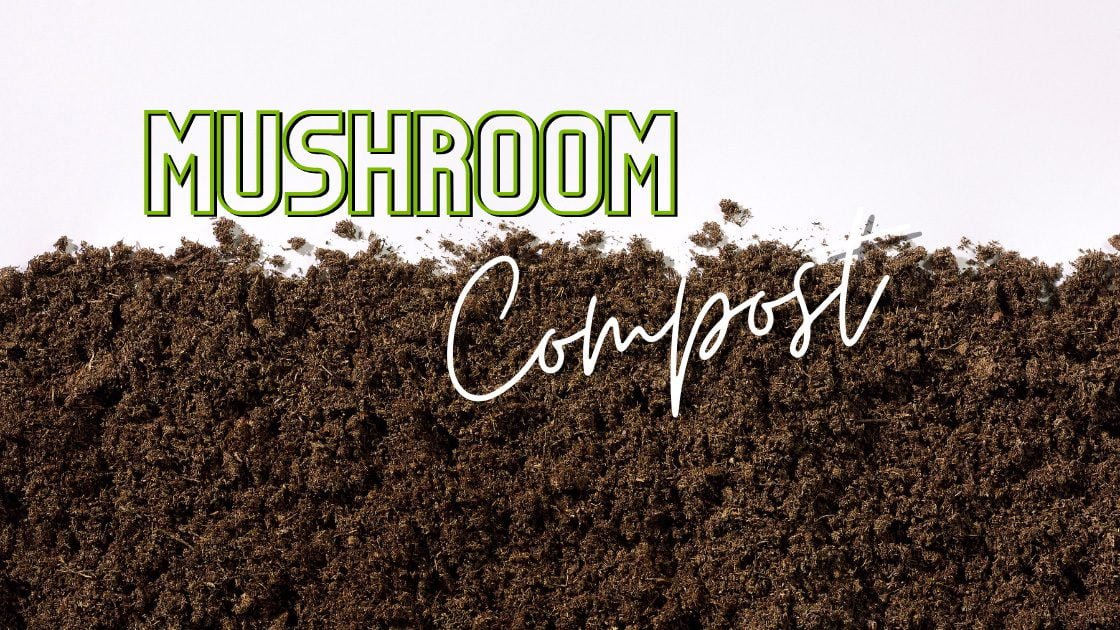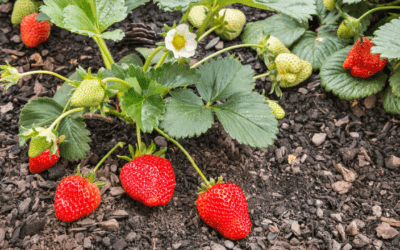When it comes to cultivating a thriving organic garden, one key ingredient stands out as a gardener’s secret weapon – mushroom compost. This dark, rich, and earthy-smelling material is a powerhouse of nutrients and benefits for your garden. In this article, we will delve into what mushroom compost is, why you should use it when building an organic garden, explore the health benefits it offers to plants, and discuss any potential downsides to its use.



- WHAT IS MUSHROOM COMPOST?
- WHY USE MUSHROOM COMPOST IN YOUR ORGANIC GARDEN?
- HEALTH BENEFITS TO PLANTS
- ARE THERE ANY DOWNSIDES TO USING MUSHROOM COMPOST?
- CONCLUSION

I recently obtained a load of this wonderful compost from a new friend I made in the landscape design class I took earlier this year. When he told our classmates he would soon be going to pick up a truck load of mushroom compost and was willing to share with all of us, I was intrigued. Most people know my obsession with composting EVERYTHING and creating a zero waste household. However, Mushroom Compost was going to be brand new for me. So I did some research.
WHAT IS MUSHROOM COMPOST?
Mushroom compost, often referred to as “spent mushroom substrate,” is the residual material left over from the commercial cultivation of mushrooms. This substance is a mixture of various organic materials that mushrooms grew on, such as straw, horse manure, chicken litter, gypsum, and sometimes other agricultural byproducts. After the mushroom harvest, this substrate is collected, composted, and then sold to gardeners as a valuable soil amendment.

WHY USE MUSHROOM COMPOST IN YOUR ORGANIC GARDEN?
Rich Nutrient Content
Mushroom compost is a treasure trove of essential nutrients for plant growth. It contains significant amounts of nitrogen, phosphorus, and potassium, the primary macronutrients needed for plant development. Additionally, it’s a source of micronutrients, such as calcium, magnesium, and iron.
Improves Soil Structure
Mushroom compost helps to improve soil structure and water retention. It is rich in organic matter, which enhances soil aeration, making it easier for plant roots to access oxygen and nutrients. Its ability to retain moisture can be particularly beneficial in drier climates.
Enhances Soil Microbial Activity
Healthy soil teems with beneficial microorganisms that aid in nutrient breakdown and uptake. Mushroom compost introduces a diverse range of microbes to your garden, fostering a thriving underground ecosystem.

ph balancing
Mushroom compost tends to have a near-neutral pH, which can help balance the soil’s acidity or alkalinity, ensuring an optimal environment for plant growth.
HEALTH BENEFITS TO PLANTS
Disease Suppression
The natural compounds found in mushroom compost, such as chitinase and enzymes, can help suppress harmful soilborne pathogens, making it an ideal choice for gardeners concerned about plant diseases.
Enhanced Growth and Yield
With its rich nutrient profile, mushroom compost can significantly boost plant growth and increase crop yields. Vegetables, fruits, and flowers tend to flourish in soils enriched with this organic material.

Enhanced Growth and Yield
Sustainability
Using mushroom compost contributes to sustainable gardening practices. By recycling agricultural waste products, it reduces the environmental impact and minimizes the need for chemical fertilizers.

ARE THERE ANY DOWNSIDES TO USING MUSHROOM COMPOST?
While mushroom compost is a fantastic addition to your organic garden, there are a few potential downsides to consider:

High Salt Content
Some batches of mushroom compost may contain elevated salt levels due to the use of gypsum in mushroom production. Excessive salt can harm sensitive plants, so it’s essential to check the salt content in your specific compost batch.
pH Adjustment
While mushroom compost is typically near-neutral in pH, it can vary from batch to batch. Gardeners may need to monitor and adjust the pH to suit their specific plant requirements.
Weed Seeds
Depending on the source and processing methods, mushroom compost may contain viable weed seeds. Regular weeding may be necessary to keep unwanted plants at bay.



CONCLUSION
Mushroom compost is a versatile and valuable addition to any organic garden. Its rich nutrient content, soil-enhancing properties, and disease-suppressing capabilities make it an excellent choice for both amateur and experienced gardeners. However, as with any gardening amendment, it’s crucial to be aware of potential downsides, such as high salt content and the presence of weed seeds. By understanding how to use mushroom compost effectively and addressing any potential issues, you can harness its benefits to create a flourishing and sustainable organic garden.

How about you? Do you have any experience with Mushroom Compost? Is it something you have tried before or do you have access to a composting facility near you? I would love to hear your thoughts in the comments below.
If you have found my research and this article informative, I hope you will head over to our YouTube Channel where we’ll be sharing a video this weekend, showing how we are using our Mushroom Compost in the garden. Be sure to subscribe so you don’t miss when we upload the video. See you soon!








0 Comments